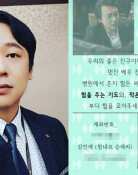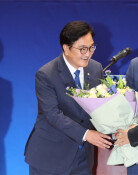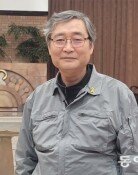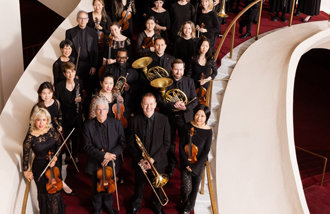The sweat of Kim Yu-na and Oscar Pistorius
The sweat of Kim Yu-na and Oscar Pistorius
Posted July. 22, 2011 03:12,
Korean figure skater Kim Yu-na is famous for never getting nervous even at a major competition. In an interview with The Dong-A Ilbo two weeks after Pyeongchang won the right to host the 2018 Winter Olympics, she said, "I had butterflies in my stomach and my legs were shaking when I was making a presentation for Pyeongchang`s bid." She added, "When Pyeongchang was named, I felt a rushing sense of impression and accomplishment on a different level than when I won the Olympic gold medal. I was so proud of my country." These comments make Koreans proud of both Kim and Korea.
Just after her figure skating performance at the Vancouver Winter Olympics on Feb. 26 last year, Kim said, "I am confident because I trained and practiced so much." Even with talent and parental support, however, the pinnacle of success is not possible without sweat. Daniel Willingham, an American cognitive psychologist, provided a clear explanation on the difference between those who get nervous before a major event or an important presentation and those who do not. "Practice makes perfect," he said. Kim, who not only won Olympic glory on the rink for her country but also served as a sports diplomat in Durban, South Africa, is considered Korea`s daughter more brilliant than any other gem.
Another athlete who could instill different dreams and courage in Koreans will join the 2011 World Championships in Athletics from late next month in Daegu. He is Oscar Pistorius, a South African sprinter known as "Blade Runner" on carbon-fiber prosthetic legs. Being born with congenital absence of the fibula in both legs would be unfortunate for ordinary people. The disability was not a stumbling block for his athletic dream, however. Faster and more courageous and more competitive than others, he was a top all-round athlete by the time he went to high school.
Pistorius has redefined the limits of human achievement. After sustaining a knee injury while playing rugby in 2003 at age 13, he started running for rehabilitation. Just a year later, he set a world record in winning the gold medal in the men`s 200-meter sprint in the 2004 Summer Paralympics. Without stopping there, he jumped over the barrier of his disability and became the world`s first Paralympian to participate in the World Championships in Athletics. On Tuesday, he finished first with a career-best time of 45.07 seconds in the 400-meter dash at an annual international sporting event in Italy, besting his previous best by 0.54 second.
Parents and society cannot dream for someone and make it come true if the person has no dream. If young people are in despair over physical or environmental disabilities, they should follow the example of Kim and Pistorius. In any field, those who try their best will be rewarded. Even if one finds the reward unsatisfactory, the process of attaining a goal itself can provide happiness for those who find meaning in challenge. The more young people sweat to achieve their goals, the brighter the future of Korean society will be.







